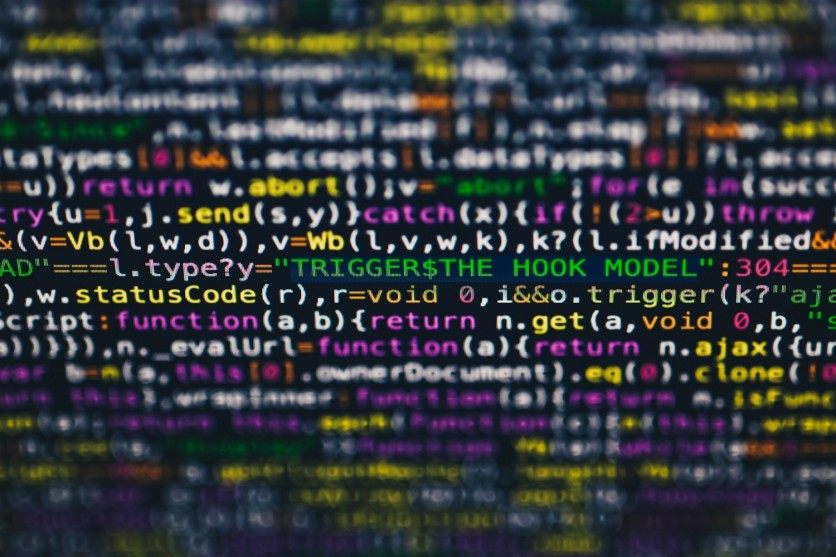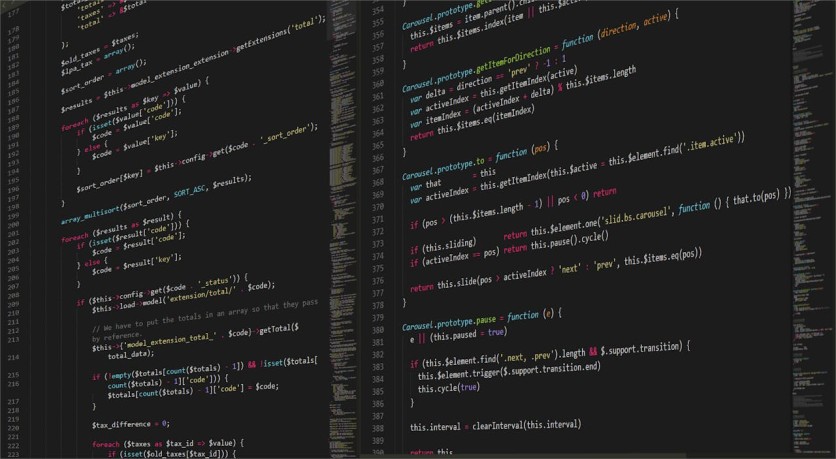In 2024, artificial intelligence (AI) has firmly established itself as a transformative force in the field of custom software development services. From ideation to deployment, AI technologies are reshaping how developers work, enhancing productivity, improving code quality, and enabling the creation of more sophisticated and intelligent applications. This blog post explores the various ways AI is revolutionizing software development, highlighting key trends, tools, and practices that are defining this new era.

1. AI-Powered Ideation and Conceptualization
The journey from concept to code begins with ideation, where AI tools are playing an increasingly significant role. AI-powered platforms can analyze vast amounts of data, including user feedback, market trends, and competitor analysis, to generate insights and suggest innovative ideas for new applications or features.
AI-driven market research
AI algorithms can scan and analyze millions of online sources, such as social media, forums, and industry reports, to identify emerging trends and user needs. This allows developers to understand market demands better and tailor their ideas accordingly. For instance, tools like IBM Watson and Google Cloud AI can provide comprehensive market analysis in a fraction of the time it would take a human researcher.
Enhanced brainstorming with AI
AI-driven brainstorming tools, such as GPT-4, can assist teams in generating and refining ideas. These tools can propose concepts, highlight potential challenges, and even suggest solutions based on existing knowledge. This collaborative approach helps foster creativity and ensures that the ideas generated are both innovative and feasible.
2. Automated Code Generation and Optimization
One of the most profound impacts of AI in software development is in the realm of code generation. AI-powered code generators are transforming how developers write code, making the process faster, more efficient, and less error-prone.
AI code assistants
AI code assistants like GitHub Copilot, powered by OpenAI's Codex, are becoming indispensable tools for developers. These assistants can autocomplete code, suggest improvements, and even write entire code blocks based on the developer's intent. By understanding the context of the code being written, these tools can significantly reduce the time spent on routine coding tasks.
Automated testing and bug-fixing
AI tools are also enhancing code quality through automated testing and bug detection. Traditional testing methods are time-consuming and often fail to catch all errors. AI-driven testing tools, such as DeepCode and Test.ai, can analyze code and identify potential bugs with greater accuracy. They can also suggest fixes and optimizations, ensuring that the code is both robust and efficient.
3. Intelligent Project Management
AI is revolutionizing project management in software development by providing tools that can predict project timelines, allocate resources efficiently, and monitor progress in real-time.
Predictive analytics for project planning
AI-driven project management tools like Jira and Asana are incorporating predictive analytics to improve planning and execution. These tools can analyze historical project data to predict potential roadblocks, estimate completion times, and suggest optimal resource allocation. This enables project managers to make informed decisions and keep projects on track.
Real-time progress monitoring
AI-powered monitoring tools provide real-time insights into project status. They can track progress against milestones, identify bottlenecks, and alert teams to potential issues before they become critical. This proactive approach helps maintain project momentum and ensure timely delivery.
4. Enhanced Collaboration and Communication
Effective collaboration and communication are crucial for successful software development. AI tools are facilitating better teamwork by improving communication channels and providing intelligent assistance.
AI-enhanced communication tools
AI-powered communication platforms like Slack and Microsoft Teams are integrating advanced features such as natural language processing (NLP) and sentiment analysis. These features help in understanding team dynamics, identifying issues in communication, and providing actionable insights to improve collaboration.
Virtual collaboration assistants
Virtual assistants like Google Assistant and Amazon Alexa are being used to schedule meetings, manage tasks, and provide reminders. These AI-driven assistants ensure that team members stay organized and focused, reducing the administrative burden on developers.
5. Personalized Learning and Skill Development
The rapid advancement of AI technologies necessitates continuous learning and skill development for developers. AI-driven platforms are providing personalized learning experiences to help developers stay updated with the latest trends and technologies.
Adaptive learning platforms
AI-powered learning platforms like Coursera and Udacity offer personalized learning paths based on individual needs and skill levels. These platforms use machine learning algorithms to recommend courses, track progress, and provide feedback, ensuring that developers acquire relevant skills efficiently.
On-the-job training with AI
AI-driven tools like Pluralsight and LinkedIn Learning are offering on-the-job training by integrating learning into the development workflow. These tools provide real-time recommendations, code reviews, and learning resources, allowing developers to learn and apply new skills simultaneously.
6. Ethical and Responsible AI Development
As AI becomes more integrated into software development, ethical considerations are paramount. Developers must ensure that AI technologies are used responsibly and that the applications they create adhere to ethical standards.
Bias detection and mitigation
AI algorithms can inadvertently perpetuate biases present in the training data. Tools like IBM's AI Fairness 360 and Microsoft's Fairlearn are helping developers detect and mitigate biases in their models. By providing transparency and accountability, these tools ensure that AI applications are fair and unbiased.
Ensuring data privacy and security
Data privacy and security are critical concerns in AI-driven development. AI tools can help identify vulnerabilities, secure sensitive data, and ensure compliance with regulations like GDPR and CCPA. Developers must prioritize data protection and implement robust security measures to safeguard user information.

Examples of AI-enhanced custom software
Industries such as healthcare, finance, and retail are increasingly relying on custom AI-enhanced software to improve operations and deliver better services. For instance, a custom healthcare application might use AI to provide personalized treatment recommendations, while a retail application could leverage AI for inventory management and personalized marketing.
Real-World Applications and Case Studies
The transformative impact of AI on software development is evident in various real-world applications and case studies. Companies across industries are leveraging AI to create innovative solutions and gain a competitive edge.

AI in Healthcare
In the healthcare sector, AI-driven software is being used to develop applications for diagnostics, patient monitoring, and personalized treatment plans. For example, IBM Watson Health is utilizing AI to analyze medical records and provide insights for improved patient care.
AI in Finance
The finance industry is harnessing AI to develop applications for fraud detection, risk assessment, and algorithmic trading. Companies like JPMorgan Chase are using AI to analyze transaction data, detect anomalies, and make data-driven investment decisions.
AI in E-commerce
E-commerce platforms are leveraging AI to enhance customer experiences through personalized recommendations, chatbots, and inventory management. Amazon's AI-driven recommendation engine is a prime example of how AI can boost sales and customer satisfaction.
Future Trends and Predictions
The role of AI in software development is expected to grow even further in the coming years. Emerging trends and predictions provide a glimpse into the future of AI-driven development.
AI-driven autonomous development
The concept of autonomous development, where AI systems can independently create and maintain software, is gaining traction. While still in its early stages, advancements in AI research suggest that fully autonomous development could become a reality in the near future.
Quantum computing and AI
The convergence of AI and quantum computing holds immense potential for software development. Quantum computing can solve complex problems at unprecedented speeds, enabling the development of more advanced AI algorithms and applications.
Human-AI collaboration
The future of software development will likely involve even closer collaboration between humans and AI. Developers will increasingly rely on AI to handle routine tasks, allowing them to focus on higher-level problem-solving and innovation.

Conclusion
In 2024, AI is transforming software development from concept to code, enhancing every stage of the development lifecycle. From ideation and code generation to project management and collaboration, AI-driven tools are making development faster, more efficient, and more innovative. Custom software development services are playing a crucial role in this transformation, providing tailored solutions that leverage AI to address specific business needs. As AI technologies continue to evolve, developers must embrace these advancements while ensuring ethical and responsible use. The future of software development is bright, with AI poised to drive unprecedented levels of creativity and productivity in the industry.
ⓒ 2025 TECHTIMES.com All rights reserved. Do not reproduce without permission.




